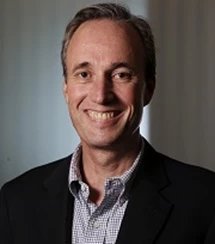
“Twenty years ago, my friends and I were confronted with a tough decision. Either we did something to break out of the cycle of subsistence farming, or we would have to make for the city like so many before us.” This is how the head of the cooperative of goat farmers of the Jussara municipality, in Bahia (northeastern Brazil), describes the origin of this collective enterprise.
We are standing at the small meat processing plant which is the cooperative’s ‘nervous system’ and a candidate for financial assistance under the Productive Bahia project. I have come here to see how the concept of productive inclusion might work in rural Brazil. The idea is simple and hinges on these two key elements: find a cooperative of farmers with sufficient scale to leave subsistence production, and team them up with a private wholesaler or agro-processing company to connect them to the market.
Obviously, financial and technical support are also important. These would allow the cooperative to expand and meet market quality standards, provide complementary investments in connecting infrastructure, and as a result achieve rising incomes for the associated farmers and create an example for others.
The reality in rural Bahia shows both the promise and the challenge of putting this idea into practice.
The promise lies with the enthusiasm of the members of the cooperative and the strong social fabric that years of investment in the cooperative movement have created.
Collective spirit “alive”
These are farmers that are eager to learn, have good knowledge of animal husbandry and are committed to the common goal. The meat processing facility is in excellent condition. There is no evidence of free riding or overexploitation of common property – the collective spirit is alive.
And this cooperative has managed to marshal one key ingredient for success: they have found a private business partner, a meat processing company from a larger town in the area which has agreed to offtake the production of the cooperative and bring it to market. The private partner has introduced new quality requirements and the cooperative is now seeking financing to expand their capacity.
The challenge is that this type of productive alliance remains very rare in Bahia and most parts of the rural Northeast of the country. Traditionally, the state has provided for everything. It has often supported the foundation of the cooperatives, granted them the first set of equipment, provided subsidized financing to the producers, and bought their produce at state/federal government guaranteed prices, often above market levels.
No financing in family-agriculture
Market financing is almost completely absent from family agriculture, and incentives for quality upgrading are muted through state offtake agreements. Even today, many potential market opportunities are first identified and launched by state initiative, often drawing on the excellent knowledge available in the state agency for technical assistance and rural extension, BahiaTer, as well as in the agricultural research institute EMBRAPA. However, this all present state may in part account for the dearth of private initiative.
This observation is confirmed by a visit to the municipality of Andaraí in the Chapada Diamantina, some 200 km to the South. We visit Andaraí to inspect rural access roads – of key importance in the strategy of productive inclusion, as without reliable access to transport, any hope of connecting to markets would remain frustrated.

The mayor, Wilson Cardoso, shows us around his district. His biggest pride is a series of all-day schools, built entirely with the municipality’s own funding, with adjacent gardens providing fresh produce for school meals, a fully equipped IT room and library, and offering music and capoeira (a Brazilian fusion of dance and martial arts) classes in addition to reading, writing and math.
The mayor’s passion for education extends to the local agro-technical college, offering an integrated curriculum of on and off-field training to local farmers. “When I took office, we were spending R$ 18,000 a month (approximately US$ 5,000) on telephone bills – now we are down to R$ 2,000 (around US$ 560),” he recounts when asked how he managed to finance the impressive improvements to social infrastructure in his municipality.
To reduce costs further he asked the parents of prospective students to chip in a couple of hours of additional work for free. As a result, he says, they feel personal pride for the schools. Vandalism is non-existent – once again the collective spirit at work under the auspices of all present local government.
The mayor’s example reveals another challenge of Brazil’s state-centered model of rural development: it is extraordinarily dependent on strong leadership. When committed leadership is absent citizens are left with mediocre services while local governments often struggle to even cover current cost – let alone set money aside for much needed investments.
This brings me to the final challenge – the limited financial autonomy of many local governments. Few taxes are locally retained, and among those that are – such as property taxes – very little is effectively collected. Hence, even basic maintenance expenses, such as for rural access roads, are funded out of transfers from the state government. With limited own revenues and thus limited fiscal benefits from promoting local private sector initiative, the attention of municipal politicians naturally turns to lobbying higher authorities.
I return to Brasilia with a sense of optimism about what can be achieved even in adverse circumstances with a combination of private initiative, collective spirit, and strong local political leadership.


Join the Conversation